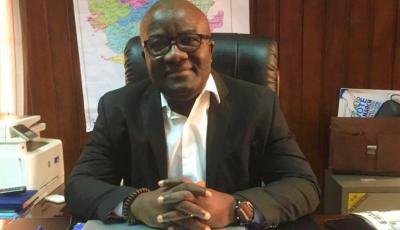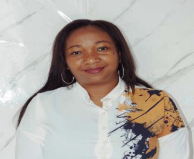By Osman Kargbo
The Chief Electoral Commissioner of Sierra Leone has reaffirmed his promise of ensuring that Sierra Leoneans get peaceful and credible elections in 2023.
“I want to assure the public of the Commission’s commitment to a peaceful and credible elections in 2023,” Chief Electoral Commissioner, Mohamed Kenewui Konneh said in presenting the Electoral Commission of Sierra Leone’s 2023 Annual Report and Preparedness for the 2023 Election to President Julius Maada Bio.
However, many democratic institutions, political parties, concerned individuals and a majority of people across the length and breadth of Sierra Leone are doubtful about the ability of the Electoral Commission of Sierra Leone (ECSL) to oversee a political process of fairness, or to conduct a fair election devoid of violence and vote rigging.
Whilst the recent by-elections in Port Loko, Karene, Tonkolili (Sambaia Chiefdom) and Kenema were relatively handled with much fairness and credibility, however, over the past four years, the people of Sierra Leon have witnessed and heard some odd developments in the way and manner ECSL (previously NEC) has been conducting or handling elections and voting in the country.
A major hallmark in ECSL’s conduct of by-elections over the past three to four years is the destruction of ballot materials such as ballot papers and boxes as well as polling centres or stations, in some cases involving senior politicians, government officials, and party thugs. Political parties have also complained of situations where ECSL workers would “deliberately and conspicuously” try to rig elections in favour of one candidate or the other.
It must however be stated that the by-elections conducted last month (25 June 2022) were peaceful and somehow rig-free, except for Sambaia Bendugu that saw some violence prior to voting day.
Substance of ECSL 2023 Report
The ECSL 2023 report contains key highlights of the 2021 Annual Report, updates on Public Elections in 2023, updates on the recommendations of Election Observation Mission, and updates on Elections Funding and Inter-Institutional Collaboration.
While it covers such nitty-gritty as governance of the commission, electoral commission re-structure, conduct of by-elections, infrastructural development, capacity building programmes, the report’s updates on public elections in 2023 also touches on the sensitive and hot issue of voter registration and boundary delimitation with a clear purpose.
Highlighting some specific updates regarding the voter registration exercise, the report further states: “In March 2002, with reference to section 22 of the Public Elections Act 2012, His Excellency the President by proclamation declared the period 3rd September to 4th October 2022 as the period for all Sierra Leoneans to present themselves for registration as voters.
“The Electoral Commission increased the number of Voter Registration Centres (VRCs) by 10%. The number of VRCs increased from 3,300 to 3,630. The spread of the new VRCs was even across the country with emphasis on the geographical distances between existing VRCs and the population density of localities.
“The Electoral Commission has concluded procurement of VR kits, development of the voter registration systems/software and 2,000 laptop computers and accessories for voter registration. Delivery of equipment is expected end of July to early August 2022.
“The Electoral Commission will use the 2,000 laptop computers in two registration [cycles in] October 2022. In each registration cycle of fifteen (15) days, only half of the voter registration centres will be opened in each district.
“The Electoral Commission is working with the National Civil Registration Authority (NCRA) on the inter-institutional arrangements for the extract of civil registration data and provision of civil registration staff and registration kits for the purpose of updating the Register of Voters.”
Boundary Delimitation (BD)
Talking about boundary delimitation, CEC Konneh referenced subsection 4 of Section 38 of the 1991 Constitution of Sierra Leone, saying the Electoral Commission has the mandate to review the division of Sierra Leone into constituencies at intervals of not less than five (5) years and not more than seven (7) years.
He said the Electoral Commission indicated in its Strategic Plan 2020 – 2024 that the externality of a significant shift in the population distribution of Sierra Leone following the conduct of the Mid-term Population and Household Census “may cause the Electoral Commission to review the division of Sierra Leone into constituencies” within the intervals referenced in Subsection 4 of Section 38.
Also referencing the Mid-term Population and Household Census of 2022, the electoral commissioner said that the census’s provisional results indicate an increase in the total population and significant shifts in population at the district level in Sierra Leone.
Hitting the nail on the head, CEC Konneh said that for the purposes of boundary delimitation (BD), the Electoral Commission has resolved to review the division of Sierra Leone into constituencies using the minimum interval of five years.
He said the EC has also set up an internal Boundary Delimitation Committee to facilitate the review processes, and signed a Memorandum of Understanding with Statistics Sierra Leone for collaborative support in technical and logistical matters during the review process.
Parliament of Sierra Leone, he stated, has confirmed that the number of seats for Ordinary Members of Parliament will remain 132 seats for the next Parliament, adding that the EC had also submitted a budget to the Ministry of Finance for the conduct of the review of boundaries.
Hammering home the grand plan, CEC Konneh stated: “The Electoral Commission will use the results of the Mid-term Population and Household Census, 2022, for the purpose of conducting the review of boundaries and has requested Statistics Sierra Leone to provide the data.”
He added that the timeline for the conclusion of the review of boundaries, including enactment of new boundaries is October 2022.
Constraints, media handpicked
The Chief Electoral Commissioner further highlighted some constraints the EC is grappling with, saying “the Commission is not oblivious of the global economic realities” and their impact on the country’s national budget to address competing demands for national development. These economic realities, he said, had also affected aspects of the Commission’s needs especially for adequate transportation for both Commissioners and staff.
“In this context,” he noted, “I believe that we can lessen the pressure on the Consolidated Revenue Fund by pulling and redirecting logistical supports from other state institutions to service the electoral activities. For instance, the government may consider allocating some vehicle from other state institutions to ease the transportation constraint of the commission and reduce number of vehicles to be hired to support the registration process.”
CEC Konneh said the Commission is working in collaboration with relevant institutions, such as NATCOM and SLBC to strengthen and add value to their operations.
“The Commission has signed an MOU with NaTCOM to support voter education programs and outreach through mobile network service providers (and) an MOU with SLBC to support in media and voter education,” he said.













